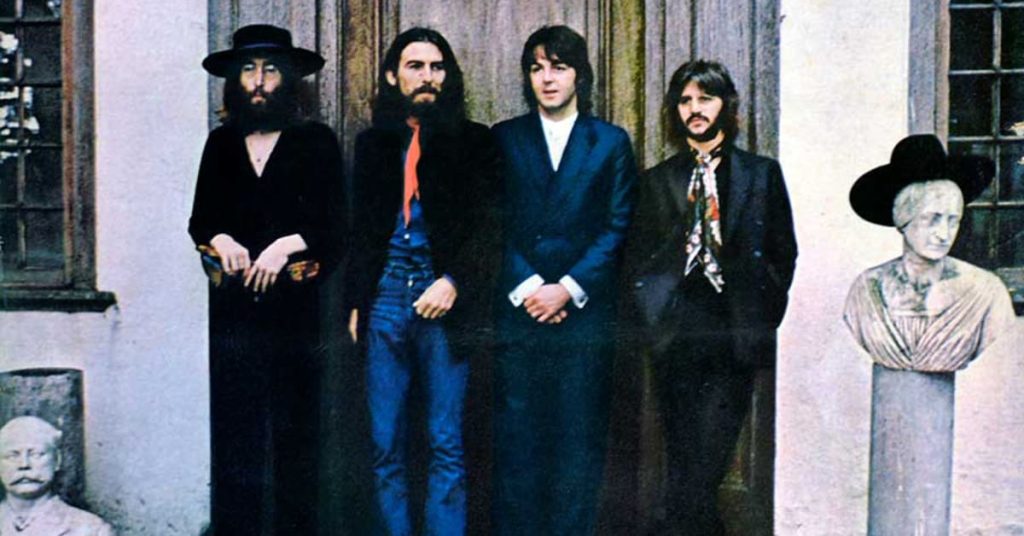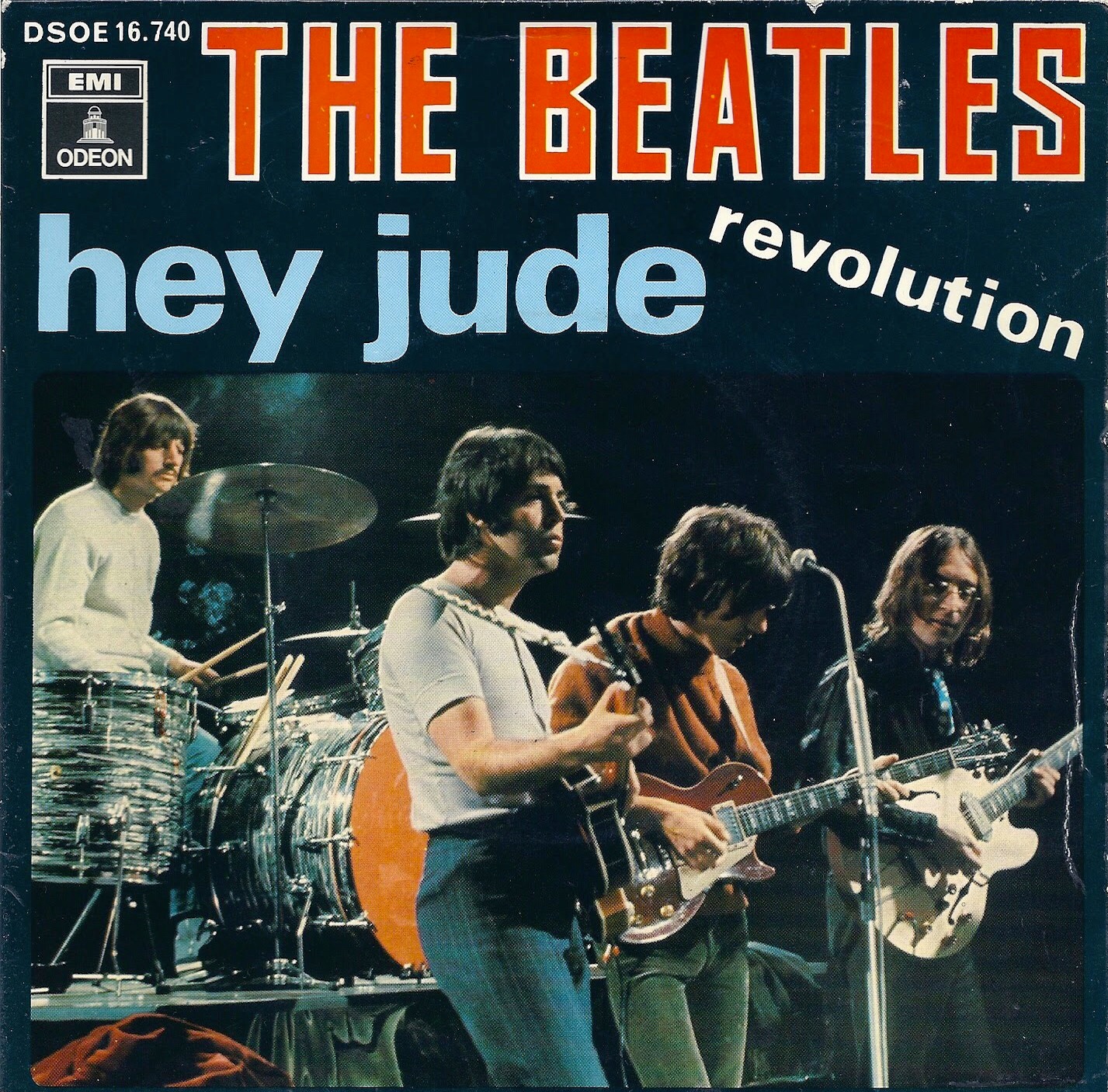“Hey Jude” by The Beatles is one of the most iconic and beloved songs in the history of popular music. Released as a single in August 1968, the song quickly rose to prominence, becoming a massive hit and topping charts around the world, including the Billboard Hot 100 in the United States, where it remained at number one for nine weeks. Written by Paul McCartney and credited to the Lennon-McCartney partnership, “Hey Jude” is celebrated for its uplifting message, sing-along quality, and the enduring impact it has had on generations of music lovers.

The origins of “Hey Jude” are both personal and poignant. McCartney wrote the song to comfort John Lennon’s son, Julian, during his parents’ divorce. Initially titled “Hey Jules,” McCartney changed the name to “Hey Jude” because he thought it sounded better. The lyrics offer reassurance and encouragement, urging Jude to take a sad song and make it better. This universal message of hope and positivity has resonated with listeners for decades, making it a timeless anthem of resilience and optimism.
Musically, “Hey Jude” is a masterpiece of simplicity and emotional depth. The song opens with McCartney’s plaintive piano chords, immediately drawing the listener in with a sense of intimacy. As McCartney’s voice joins the piano, the lyrics unfold with a gentle, soothing quality. The gradual buildup of instruments, including acoustic guitar, tambourine, and orchestral elements, adds layers of richness and complexity to the arrangement.
One of the most remarkable aspects of “Hey Jude” is its structure. At over seven minutes long, it was unusually lengthy for a single at the time. The song’s second half is dominated by a lengthy coda featuring a repeated refrain of “na-na-na-na, Hey Jude,” which builds in intensity and volume. This coda, lasting over four minutes, is a communal, almost hypnotic chant that invites listeners to join in. The repeated refrain creates a sense of catharsis and unity, turning the song into an emotional and communal experience.
Paul McCartney’s vocal performance on “Hey Jude” is deeply expressive and heartfelt. His ability to convey both tenderness and strength is evident throughout the song, particularly in the transition from the verses to the powerful coda. McCartney’s voice, combined with the lush harmonies provided by the rest of The Beatles, creates a rich, textured sound that is both comforting and exhilarating.
The production of “Hey Jude” is another key element of its success. Produced by George Martin, the song features a sophisticated yet accessible arrangement that highlights the emotional core of the lyrics. The use of orchestration, including a 36-piece orchestra, adds a grand, almost symphonic quality to the coda, enhancing the song’s emotional impact. Martin’s production skills ensure that each element of the song, from the intimate piano opening to the climactic ending, is perfectly balanced and resonant.
Upon its release, “Hey Jude” received widespread critical acclaim and commercial success. It was The Beatles’ first single released on their Apple Records label and became one of their best-selling singles. The song’s impact was immediate and profound, resonating with audiences around the world and solidifying The Beatles’ status as one of the most innovative and influential bands in music history.
For many older listeners, “Hey Jude” is a nostalgic reminder of a time when music was a unifying force in a rapidly changing world. The song’s message of hope and encouragement, combined with its communal refrain, made it an anthem for a generation seeking comfort and connection. Its enduring appeal lies in its ability to speak to the human experience in a profound and uplifting way.
In conclusion, “Hey Jude” by The Beatles is more than just a song; it is a timeless piece of musical art that continues to inspire and uplift listeners. With its simple yet powerful lyrics, masterful musical arrangement, and deeply expressive vocal performance, the song captures the essence of hope, resilience, and communal spirit. Whether you’re a longtime fan or discovering it for the first time, “Hey Jude” remains a powerful testament to The Beatles’ unparalleled legacy in the world of music.
Let’s sing along with the lyrics!
Hey Jude, don’t make it bad.
Take a sad song and make it better.
Remember to let her into your heart,
Then you can start to make it better.
Hey Jude, don’t be afraid.
You were made to go out and get her.
The minute you let her under your skin,
Then you begin to make it better.
And anytime you feel the pain, hey Jude, refrain,
Don’t carry the world upon your shoulders.
For well you know that it’s a fool who plays it cool
By making his world a little colder.
Hey Jude, don’t let me down.
You have found her, now go and get her.
Remember to let her into your heart,
Then you can start to make it better.
So let it out and let it in, hey Jude, begin,
You’re waiting for someone to perform with.
And don’t you know that it’s just you, hey Jude, you’ll do,
The movement you need is on your shoulder.
Hey Jude, don’t make it bad.
Take a sad song and make it better.
Remember to let her under your skin,
Then you’ll begin to make it
Better better better better better better, oh.
Na na na nananana, nannana, hey Jude…
(repeat X number of times, fade)
